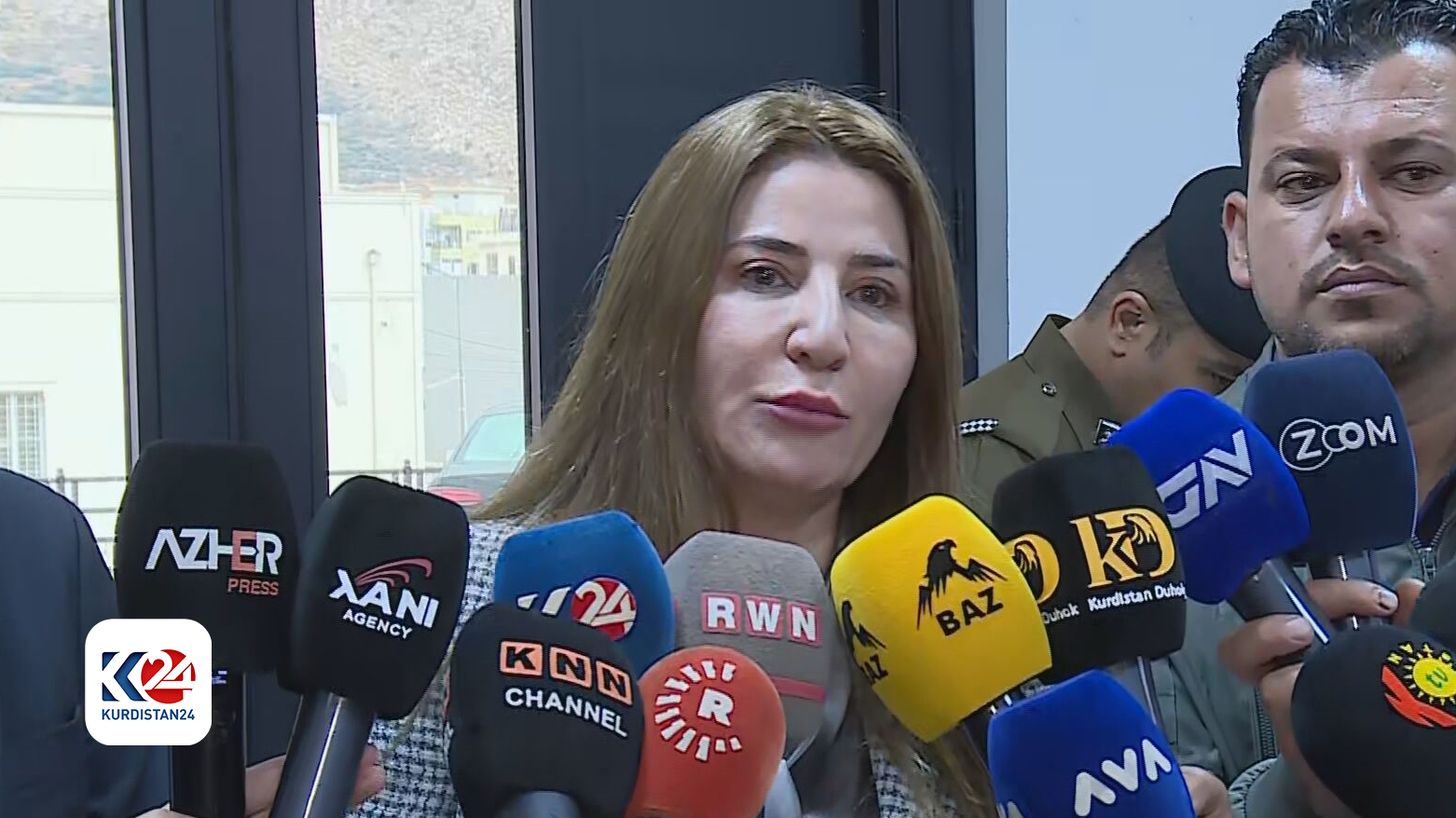Yezidi IDPs can now obtain National ID cards in Duhok
Vian Dakhil, KDP faction spokesperson in the Iraqi Parliament, stated on Monday that "residents both inside and outside the camps can now process their national ID cards in Duhok instead of traveling back to Sinjar."

Nov. 11, 2024
ERBIL (Kurdistan 24) - In a significant development for displaced Yezidi citizens, the Ministry of Interior and KDP Branch 17 have facilitated a new process allowing Sinjar (Shingal) IDPs to obtain their national ID cards in Duhok, eliminating the need to return to their hometown.
Vian Dakhil, the spokesperson for the Kurdistan Democratic Party (KDP) faction in the Iraqi Parliament, announced during a press conference on Monday that "residents both inside and outside the camps can now process their national ID cards in Duhok instead of traveling back to Sinjar."
A joint team comprising representatives from the Duhok Migration and Displacement Directorate and the National ID Card Department will visit camps daily to process applications for up to 100 displaced persons per day.
"This initiative has been made possible through the collaborative efforts of the Kurdistan Regional Government's Ministry of Interior and KDP Branch 17," Dakhil explained.
According to Dakhil, the names of camps scheduled for visits by the joint team will be announced daily on the official electronic platforms of both the Duhok Migration and Displacement Directorate and the Parliamentary Office.
Pir Dayan Jaafar, KRG's Director of the Department of Migration, Displacement, and Crisis Response in Dohuk, described this as "a crucial step in simplifying the national ID card issuance process for Sinjar IDPs in Duhok, reducing both travel distance and expenses."
Regarding the upcoming national census, Dayan expressed concern about the prolonged displacement of the Yezidi community, stating, "While we hoped all Yezidi citizens from Sinjar and other areas could participate in the census from their homeland, they have been displaced for 10 years. We hope the census process won't disadvantage the Yezidi community."
The Yezidi community from Sinjar has been displaced since August 2014, when ISIS attacked their ancestral homeland, committing genocide against the religious minority.
Many have been living in IDP camps in the Kurdistan Region, particularly in Duhok province, unable to return home due to security concerns and lack of basic services in Sinjar.
This new administrative measure represents a significant step in addressing some of the bureaucratic challenges faced by the displaced community.